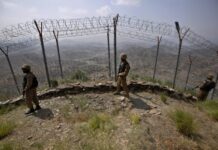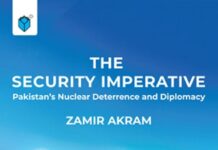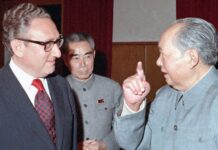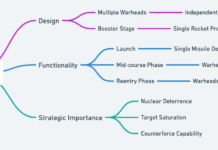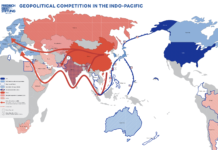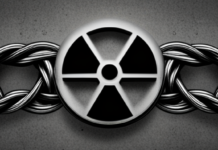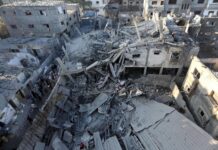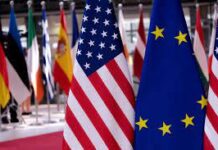Syed Ali Zia Jaffery
U.S. President Donald Trump is challenged by two somewhat concomitant foreign policy challenges posed by North Korea and Iran. One cannot help but draw parallels between the two. The U.S. considers both, the Kim-led DPRK and the Khamenei-led Iran as pariah and rogue regimes. More importantly, the principal U.S. policy objective in Pyongyang and Tehran is the same: halting their nuclear program (though both are at different stages).
However, the Trump administration has dealt with both cases differently. After sabre-rattling against DPRK that started with the ‘Fire and Fury’ tweet, President Trump entered into summit-level and direct talks with Kim Jong-un. The change in approach has averted what once looked like an imminent war with nuclear dimensions between Pyongyang and Washington. On the other hand, the U.S. administration has abjured the idea of negotiating with Iran. President Trump has not been able to de-hyphenate the nuclear issue with other points of friction between the two countries. From encouraging Muslim countries to confront Iran in the 2017 Riyadh Summit to taking credit of the Qatar blockade, President Trump was on the lookout to punish Iran’s inimical roles in Syria and Iraq. U.S.’ withdrawal from the landmark Joint Comprehensive Plan of Action (JCPOA) was a direct result of this conflation. Iran’s announcement of partial non-compliance with the JCPOA has exacerbated tensions between the two countries. The cloud cover of war became thicker when Trump took to Twitter and threatened Iran of finishing it off “officially”. As expected, Iran has shown its customary defiance, and vowed to fight it out, should it come to that point.
Though the inveterate rivalry between Iran and the U.S. does not bode well for regional peace, there is still room for a settlement, however tenuous it may be. Recently, President Trump has said that he is neither looking for regime change nor war with Iran. More significantly, President Trump stressed that all he wants from the Islamic Republic is to not make nuclear weapons. The statement is quite instructive because it lays bare POTUS’ choice of the foremost bone of contention between the two countries.
On the nuclear issue, Iran has been very clear. Strictly adhering to the edict of Ayatollah Khomeini, Iran’s current leadership considers nuclear weapons as unlawful and un-Islamic. Iran’s Supreme Leader, Ayatollah Ali Khamenei recently reiterated that his country will not make nuclear weapons because they are forbidden in Islam. Given the powers and influence of the clergy, such enunciations should be reassuring for non-proliferation campaigners. Coupled with IAEA’s stamp on Iran’s compliance with the JCPOA, Ayatollah’s clear messaging on nuclear weapons is a severe indictment of U.S.’ unilateral relinquishment of the JCPOA.
It is noteworthy to mention that the nuclear dimension of Tehran-Washington rivalry was perhaps the only trouble-free bilateral matter between the two before the JCPOA was dealt a blow. Critics rightly point out that JCPOA became a casualty of things that had nothing to do with the agreement. The ‘walk away’ from the JCPOA gives a pretext to Iran to up the ante against the U.S. and its allies in the Middle East. Besides, it presents the U.S. as a party that does not keep its non-proliferation commitments. Such an impression will also damage U.S.’ credibility in its ongoing negotiations with Kim Jong-un.
If the nuclear issue is a priority for the Trump administration then it must delink it with other disputes it has with the Islamic Republic. The JCPOA kept a check on Iran’s nuclear program; it was the surest way to keep Iran from getting the bomb. A fundamental change in U.S.’ attitude towards the JCPOA is much needed.
The thought that sanctions would hurt and the unilateral withdrawal of the U.S. from the JCPOA will compel Iran to mend its ways in the Middle East, is a flawed one. If anything, such dangerous tactics will cause Iran to ramp up its activities in not only Syria and Iraq but also in Afghanistan where its ties with the Taliban are on the mend. By focusing on the nuclear issue only, the U.S, can avoid getting into another protracted conflict in the region.
Iran’s aversion to nuclear weapons provides an opportunity to the U.S. to engage with the Islamic Republic. This space may shrink in times to come as evidenced by Iran’s unflinching resolve to protect itself. Iran’s Foreign Minister, Javed Zarif warned the U.S. against threatening Iran while saying that his country does not differentiate between economic and military wars.
The odds are stacked against the U.S. While the hostage syndrome continues to play on the minds of U.S. policy makers, Iranians remember Operation Ajax, and how the U.S. tilted towards Iraq when Saddam Hussein was pounding Iranian cities in the 1980s. As of now, Iran is perched at a much stronger position in the Middle East as compared to the U.S. and its allies. Hence, a failure to dissociate the nuclear issue from Iran’s proxy wars will only result in Iran linking the two, an outcome that the U.S. neither needs nor desires.
Much to the chagrin of peaceniks, the U.S. is not looking to treat these issues separately, and is seeing Iran through one prism – terrorism. If regional stability is the end-state that the U.S. has in mind, then this paradigm has to change, and that too, drastically.
Syed Ali Raza Jaffery is a Research Associate at the Center for Security, Strategy and Policy Research, University of Lahore. He is currently South Asian Voices Visiting Fellow (2019-20) at Stimson Center, Washington DC.



